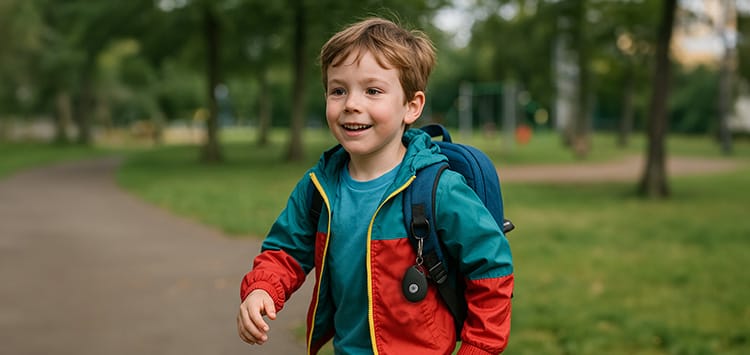Children with neurodevelopmental conditions—often referred to as neurodivergent children—face unique challenges in everyday life. Diagnoses such as ADHD, autism spectrum disorder (ASD), Tourette’s syndrome, or dyslexia affect not only how a child learns, but also how they navigate their environment, handle transitions, and build independence.
One support solution that’s growing in popularity is GPS-based safety devices. These tools bring structure and peace of mind to families, especially in situations where unpredictability creates vulnerability.
What Does It Mean to Be a Neurodivergent Child?
Neurodivergent children process information differently from what’s considered “neurotypical.” This can impact:
- Attention span and concentration
- Impulse control and energy levels
- Social interaction and communication
- Stress response and the need for routine
Sudden changes in plans or unfamiliar environments can be overwhelming. A GPS safety device offers a way to increase predictability—and in turn, reduce anxiety for both child and parent.
MiniFinder Pico – Pocket-Sized Safety for Kids
The MiniFinder Pico is a lightweight, easy-to-use GPS tracker designed for children who prefer not to wear a watch or smartwatch. It’s discreet and can be carried in a pocket, backpack, or worn around the neck with an accessory.
For neurodivergent children, this means greater flexibility and comfort—without compromising on safety.
Key Features That Matter
- Real-time location tracking
Easily see where your child is at any moment via the MiniFinder app. - SOS button for emergencies
With one press, your child can send an instant alarm to caregivers if they feel unsafe or overwhelmed. - Two-way calling
Enables voice communication, offering reassurance and connection when it matters most. - Geofence zones
Set up safe areas like school or home—receive alerts if the device moves outside those zones.
Why It’s Especially Useful for Neurodivergent Kids
Many children with ADHD, autism, or related conditions experience difficulty coping with sudden transitions or communicating under stress. A device like the MiniFinder Pico empowers them with a sense of control, knowing that help is always just one button away.
At the same time, caregivers gain confidence that their child can explore more freely—while remaining connected and protected.
More Than a Gadget – It’s a Daily Support Tool
While the Pico is not a medical device, it functions as assistive technology in many families. It complements other supports like visual schedules, educational aides, or professional therapies.
In some cases, funding or subsidies for such devices may be available through schools, special education programs, or local authorities, depending on region.
Conclusion: Safety That Supports Independence
Raising a neurodivergent child means balancing supervision with independence. The MiniFinder Pico helps families create that balance—with a reliable, portable GPS tracker designed for real-life situations.
Because when your child feels safe, they can explore more. And when you feel connected, you can breathe easier.

